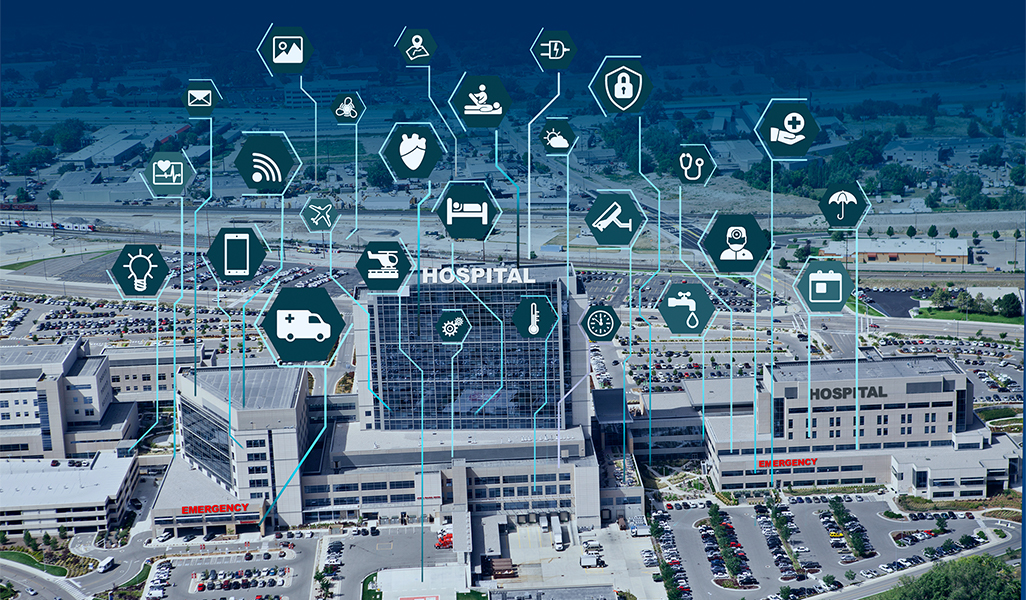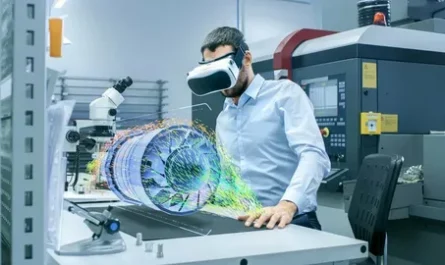Smart Technology Integration in Healthcare Infrastructure
Hospitals around the world are undergoing rapid digital transformation with the integration of various smart technologies into their existing healthcare infrastructure and processes. Artificial intelligence, internet of things, cloud computing and data analytics are being utilized to develop smart hospitals of the future which can provide more efficient, affordable and personalized care. With advancements in sensor technologies, medical devices and equipment in hospitals are being integrated with IoT to collect real-time health data of patients for remote monitoring and management of chronic conditions. This data is stored and analyzed on the cloud for predictive modeling of disease progression and preventive interventions.
Telehealth and Remote Patient Monitoring
One of the major impacts of smart technologies has been on telehealth and remote patient monitoring services. This has enabled off-site healthcare providers to connect with patients digitally and deliver various services like consultations, post-discharge follow ups, treatment adherence checks through video conferencing and mobile health apps. Chronic disease patients can self-monitor health parameters like blood pressure, blood sugar, weight, symptoms through IoT enabled wireless medical devices and share the data with doctors and care teams. This helps prevent hospital readmissions and shorten recovery times through continuous care outside the hospital walls. The collected health data also helps doctors make more informed treatment decisions.
Streamlined Hospital Operations Through Automation
Smart Hospitals are leveraging automation technologies like robotics, artificial intelligence and machine learning for streamlining various clinical and administrative operations. Intelligent virtual assistants powered by AI are being deployed to triage patients remotely, manage appointments and schedule tests. Robotics processes are automatingtasks like medication management, specimen collection, sample processing and analysis which reduces risks of human errors. Advanced AI algorithms are also being used for automating complex administrative functions like billing, insurance claims processing and supply chain management in hospitals resulting in reduced turnaround times and operational costs.
Precision Diagnostics Through Medical Imaging
Radiology and medical imaging departments are at the forefront of adopting cutting-edge AI applications to bring more precision to disease diagnosis and treatment planning. Deep learning algorithms are being used to analyze complex medical images like CT scans, MRIs and x-rays in order to detect anomalies, segment tumors and provide computer aided detection of various diseases. This helps overburdened radiologists to improve diagnostic accuracy, especially for rare conditions. AI image analytics also enables development of personalized drug therapies and minimally invasive surgical procedures tailored to individual patients. Augmented reality and mixed reality technologies are further enhancing these capabilities by enabling AI/AR integrated medical visualization of scans during surgeries.
Optimized Resource Utilization Through Predictive Analytics
Advanced data analytics powered by machine learning and predictive modeling is enablingoptimize resource utilization like hospital beds, medical staff, operating rooms and inventory across hospitals. AI is able to analyze trends from past patient records and predict future requirements and demand patterns more accurately. This helps proactively allocate beds based on expected patient volumes from different departments. Staffing needs can be planned in real time based on predicted changes in patient load and acuity levels. Operating room schedules and surgical block times can be optimized to increase throughput. Predictive analytics of inventory usage also optimizes medical supply chain management by automating reorder quantities and delivery schedules. All these measures collectively enhance hospitals’ operational efficiency.
Personalized Care Facilitated By Genomics
Genomic sequencing capabilities coupled with electronic health records have allowed implementation of precision medicine practices in hospitals today. Genomic data collection, analysis and storage solutions are enabling identification of individual patient’s genetic variations, protein expressions, metabolism pathways and disease risks. This personalized genomic information empowers doctors to develop customized treatment plans, select targeted drug therapies and predict side effect risks for each patient. Pharmacogenomics studies are also providing insights on varying drug responses influenced by genetics. As genomic data is integrated into EHRs, clinical decision support tools powered by AI start facilitating delivery of personalized healthcare based on a patient’s unique genetic makeup.
Promoting Data-Driven Clinical Research
Aggregation and anonymization of structured and unstructured health data from electronic records, clinical notes, medical imaging and other sources have created larger data repositories supporting research activities in academic medical centers and hospitals. Deep unsupervised learning techniques like self-organizing maps are applied on these datasets to discover new and hidden patterns, risk factors and insights. This data-driven clinical and translational research approach based on real-world evidence is helping accelerate the development of new treatment protocols and diagnostic markers. Integration of research data with AI also aids in clinical trial recruitment processes and drug repurposing efforts. Participating hospitals are thus transforming into innovative research hubs alongside their clinical responsibilities.
In summary, smart technologies are ushering in a new era of digital healthcare delivery focused on improved outcomes, personalized care, preventive management of chronic diseases, streamlined operations and data-driven clinical innovations. While privacy and security challenges need addressing, the convergence of AI, IoT, telehealth, robotics, cloud computing and genomics promises to revolutionize patient-centered care inside and outside hospital premises leading to healthier communities overall.
*Note:
1. Source: Coherent Market Insights, Public sources, Desk research
2. We have leveraged AI tools to mine information and compile it.



